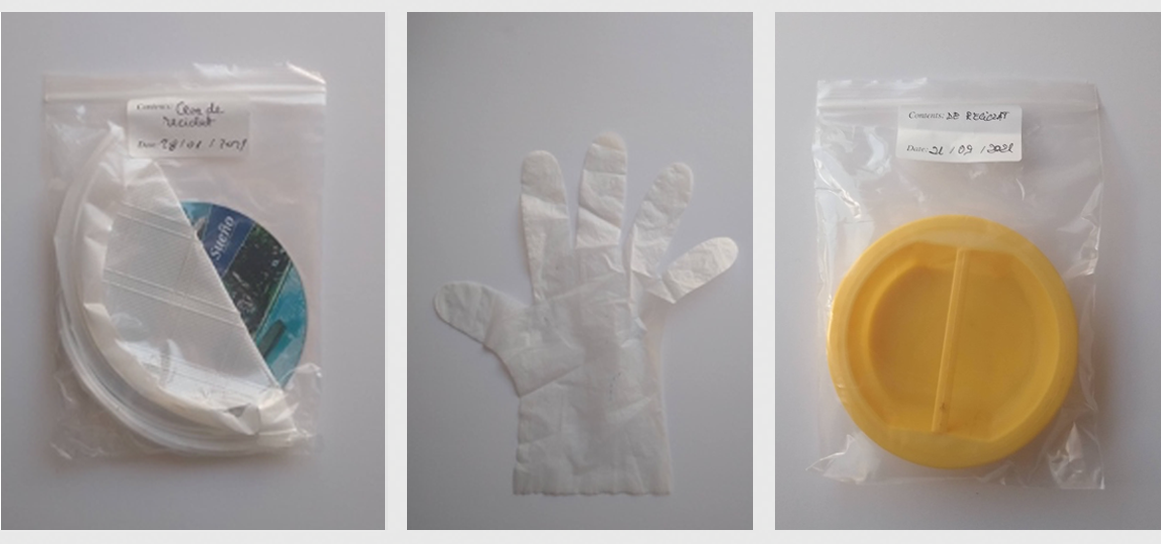Manuela: “With the block thermically insulated, the winter seemed less cold. Even during the summer, the insulation helps to keep the heat out.” Bucharest, Romania
Manuela’s words are telling: many of the Bucharest participants were indeed very happy to be living in insulated blocks of flats. These blocks had been refurbished thanks to a program of thermic insulation supported by both local and European funds. As part of this complex process of thermic rehabilitation, the buildings’ walls were covered with polystyrene and painted with new colours. The external doors were changed and old wood and glass windows were replaced with new windows made of thermopan. Even the windows and doors of communal spaces — such as the corridor leading to the rubbish chute — were thrown away and replaced.
One of Manuela’s dust samples was collected from the window porch: in a note, she wrote that it is possible that the dust specs also contain some insulation materials. Generally, however, very few participants questioned the new insulation’s materials and their possible implications for health and safety. Participants were also gradually realising that the shift from a socialist regime to capitalism also involves a change in materiality. During the communist years, people would usually reuse their bottles and jars for buying milk and yoghurt. Nowadays, much more waste is accumulated. For example, for fear that their new consistency might cause a blockage, the recyclable materials would very often be placed next to, and not inside, the rubbish chute. There was certainly a learning curve — when asked to show what sort of stuff they would recycle, four participants included items that cannot be recycled in Bucharest: plastic gloves, surgical masks, straws, plates, and lids.


